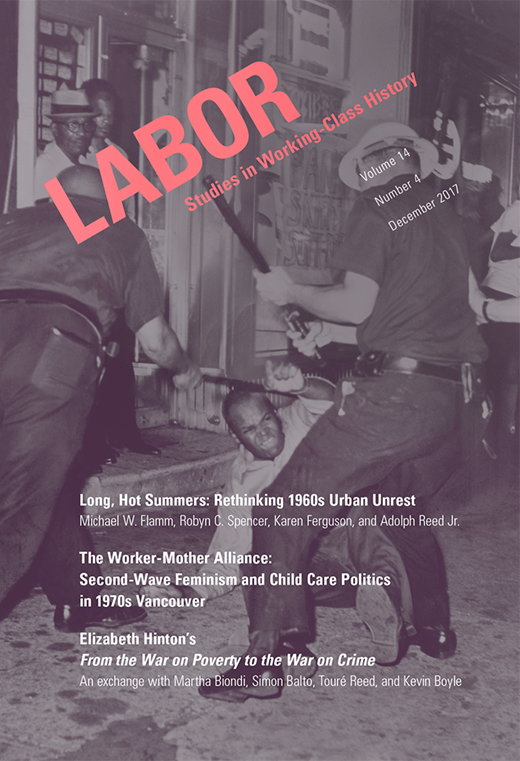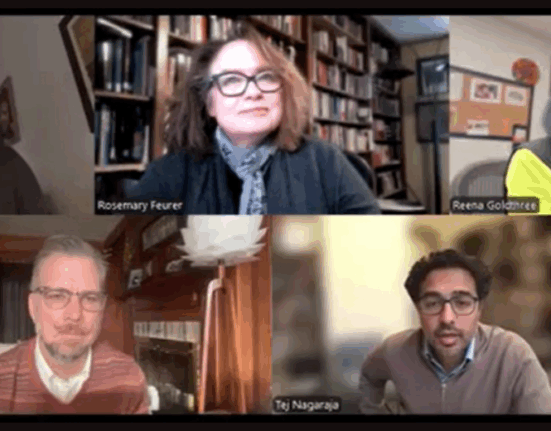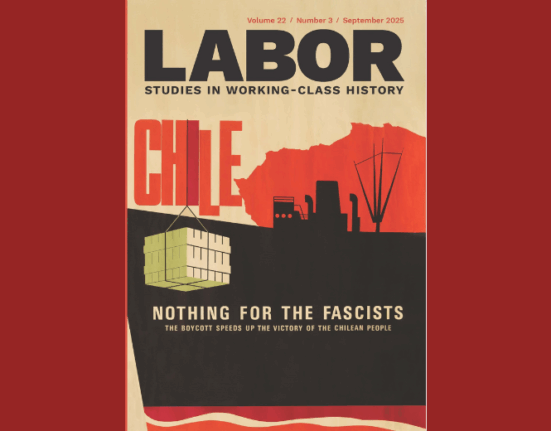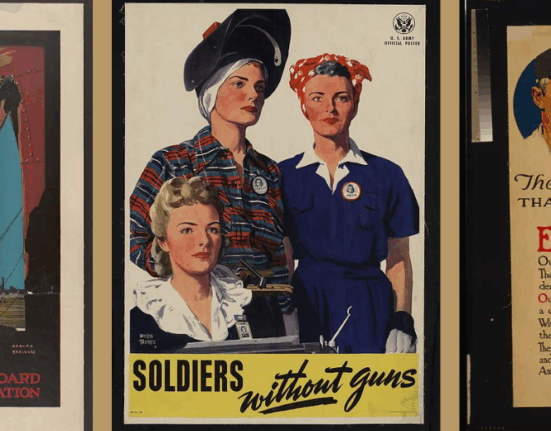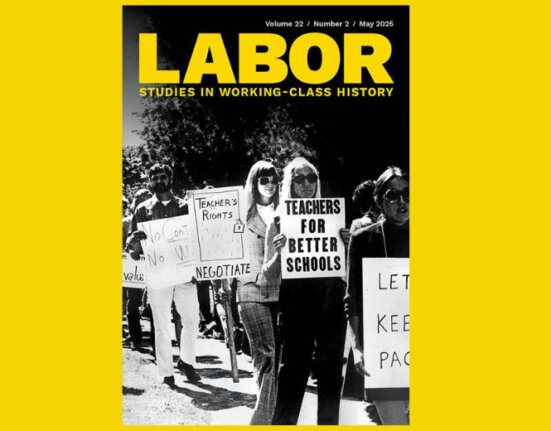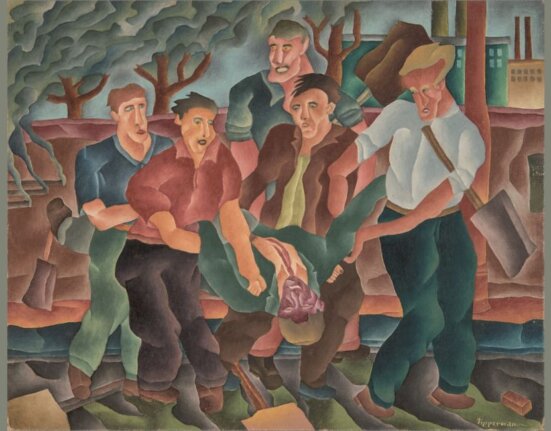In This Issue
In Memorium
- Judith Stein (1940-2017)
Editor’s Introduction
- Leon Fink, Editor’s Introduction
The Common Verse
- Christine Gelineau, Story
LAWCHA Watch
- Nikki Mandell, “Teaching Labor’s Story“
Articles
- Michael W. Flamm,”Urban Upheaval and the Enduring Appeal of Law and Order”
It is difficult to overstate the political impact of the urban unrest of the 1960s. The explosions in Newark and Detroit fifty years ago devastated those cities and sent shock waves across the country. The “long, hot summer” of 1967 also eroded popular faith in activist government and the Great Society, which never recovered from conservative claims that liberal programs had stimulated the civil disorders by encouraging the irresponsible and “rewarding the rioters.”
- Lisa Pasolli, Julia Smith, “The Labor Relations of Love: Workers, Childcare, and the State in 1970s Vancouver, British Columbia”
This article examines the efforts of feminist unions to organize childcare workers in 1970s Vancouver, British Columbia, and highlights the entrenched opposition to union organizing by women considered to be “just babysitters.” These workers’ efforts challenged the “love-versus-money” divide that hampered women’s organizing efforts in the care sector. Vancouver childcare workers, working in alliance with parents, insisted on the public importance of their traditionally private work. In doing so, they connected their fight for better working conditions with the fight for universal childcare. They linked women’s struggles in the workplace to calls for the redistribution of society’s caregiving responsibilities away from families and the market and toward the state. Government intransigence prevented meaningful childcare policy reform, but workers’ efforts highlighted a key moment in Vancouver’s feminist and labor history when the fair treatment of care workers was linked to the liberation of all women.
Bookmark
- Liesl Miller Orenic,”Introduction”
In 1964 just over two hundred thousand Americans were in prison. Today that number reaches over two million. The question at the core of Elizabeth Hinton’s book From the War on Poverty to the War on Crime is, how did we get here? Her work demands a reconsideration of commonly held narratives about when and how mass incarceration started in modern America and who is responsible for its architecture. Hinton deepens our understanding of the historicization of violence and the criminalization of black youth in the twentieth century and places the role of the federal government at the heart of her study.
- Martha Biondi, “The Long and Devastating Reach of Federal Crime-Control Policies“
- Simon Balto, “The Carceral State’s Origins, from Above and Below“
- Touré F. Reed, “All Roads Named Culture of Poverty Lead to Mass Incarceration“
- Kevin Boyle, “Crime Wars“
- Elizabeth Hinton, “Author’s Response“

